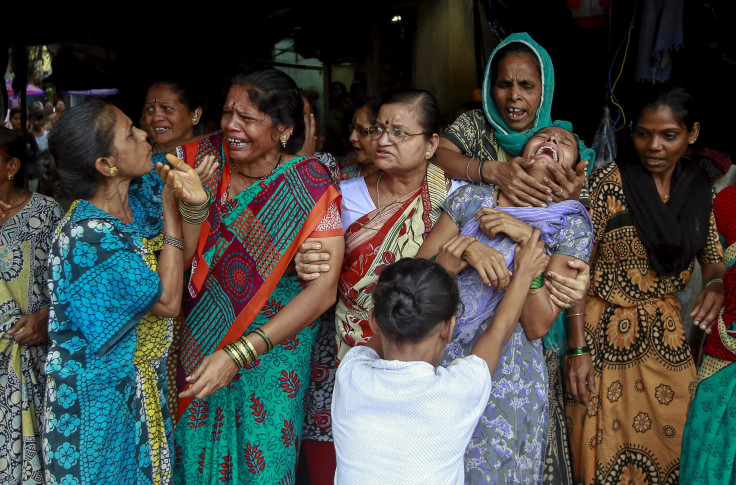India Hooch Deaths: Police Arrest Supplier Of Toxic Alcohol That Killed Over 100 In Mumbai

Indian police on Tuesday arrested a man who allegedly supplied toxic liquor that killed over 100 people in the western city of Mumbai, local reports said. The man, reportedly identified as Mansur Latif Shaikh, was taken into custody during a raid in northwestern New Delhi.
Police reportedly said that the 26-year-old had smuggled the illicit alcohol from neighboring Gujarat, which is the only state in India where alcohol is prohibited, and delivered it to local dealers in Mumbai. Seven people, including two women, have already been arrested in Mumbai in connection with the case, BBC reported. Shaikh has been named as the main suspect in the case by Veenu Bansal, Delhi deputy police commissioner, who also said that the man had confessed to diluting three canisters of "spurious liquor," that was later packed into containers and sent to Mumbai.
"Since the last three years he has been involved in the sale and supply of spurious liquor," Bansal said in the statement, according to Agence France-Presse.
A preliminary analysis of the liquor found that methanol was added to the alcohol, making it significantly more dangerous. “Bootleggers mix methanol in the country-made liquor to increase its potency,” an anonymous police official told the Indian Express, a local newspaper.
Police are reportedly waiting for the results of an investigation that would help determine whether high levels of methanol were present in the liquor.
This incident is the latest in a string of deaths in India caused by toxic bootlegged alcohol. In January, at least 29 people were killed after consuming toxic alcohol in the northern state of Uttar Pradesh. Hooch is reportedly available for a third of the cost of locally-produced liquor, making it popular among daily wage earners, who prefer it over more expensive but authentic products.
© Copyright IBTimes 2025. All rights reserved.





















